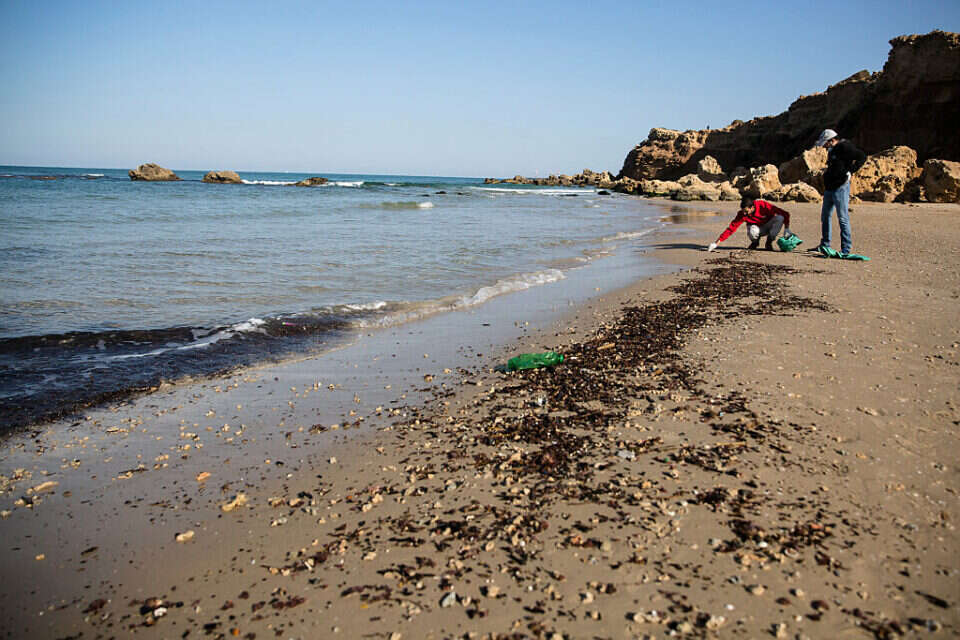Exactly one year ago, one of the most serious ecological disasters the country has ever known occurred: the pollution of the sea by tar that washed up to the shores of the country, and as a result, the coastal strip about 160 kilometers long was polluted.
The beach clean-up operation was dubbed "Tar in the Storm" and the incident was defined by the Ministry of Environmental Protection as a state of emergency of one degree below the highest.
From a deep familiarity with the political nature of Israel, we have become accustomed to the fact that decision-makers do not wake up on time and act only when disaster strikes.
And now, a year after one of these befell us, the maritime environmental conservation organizations in Israel expected that effective preparations for the next disaster would be further promoted.
But expectations aside and actions aside, and despite the severe environmental damage from the recent disaster we face to date, the government has done nothing, and such critical actions have not been promoted or implemented.
The frustration with the situation is very great, and it is even greater in light of the fact that the CEO Forum with the participation of most relevant government ministries convened after the disaster to examine what actions need to be implemented by the state to prepare for the next disaster. An array of emergency volunteers, allocating resources for the purchase of dedicated emergency equipment, and for approving manpower standards for the Marine Unit in the Ministry of Environmental Protection.
The forum also called for advancing the 2008 government decision to the Talmud Law (National Plan for Preparedness and Response to Oil Pollution Incidents). The law and the budgets will not be transferred to the Ministry of Environmental Protection in favor of standards, equipping and preparing for the next maritime disaster, we will reach it unprepared, the treatment time will be long and will have serious consequences, including significant environmental damage.
It is important to know that the damage is not only "environmental", since about 80% of the drinking water in the country comes from the desalination of seawater and most of the large (and coal) power stations located along the country's shores.
In the event of an emergency in the oil that will reach Fatah, we will be required to close them, thus severely damaging Israel's water supply and electricity.
This is not a small risk.
The possibility of another disaster of this magnitude is very high in light of the fact that not far from the shores of Israel, there is a maritime trade route that constitutes a major artery of oil supply from the Gulf to European countries.
Along this route, Iranian oil ships are also passing, which could pose a significant threat in light of tensions between the two countries.
Also, the increase in the activity of the various energy companies in the economic water space of the country, requires from us a completely different preparation.
Fortunately, the EPA activity in the Eilat area and the port of Ashdod has been delayed for the time being, which also poses a great risk of pollution.
From the experience we have gained in previous oil disasters around the world, we have found that even under the best conditions, about 85% of the oil stain that leaks into the heart of the sea will eventually reach the shore.
Experience also shows that the most accurate and least harmful tool for the environment for cleaning oil-contaminated beaches is the assistance of volunteers with basic training and professional guidance.
This understanding led about a year and a half before the body tar disaster called "The National Network of Marine Emergency Volunteers in Israel."
The initiative to establish the network was born as a result of a collaboration between the Equation Association (and through it the entire environmental movement) and the Ministry of Environmental Protection.
The network is still funded by a philanthropic entity, but without passing a law or budget it may close.
If this happens, it is very possible that the next catastrophe will reach us in a much worse situation than the last one.
The danger is real and well-founded, and the state must act urgently.
Were we wrong?
Fixed!
If you found an error in the article, we'll be happy for you to share it with us

